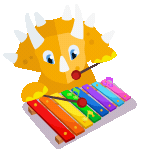Daily Language Habits That Actually Work for Kids
Daily habits help language learning stick. While long lessons can feel overwhelming, small routines built into daily life keep kids engaged and progressing without it feeling like extra work.
Here are simple, research-backed language habits that actually make a difference.
1. Use Set Phrases in Daily Routines
Choose a few practical phrases your child hears often like “Good morning,” “Let’s eat,” or “Time to clean up” and say them in the target language each day. Repetition creates automatic recognition and builds confidence.
2. Assign a “Language Moment” Each Day
Designate a consistent 5–10 minute block for language exposure. It could be:
- A short story or video
- A sing-along
- Flashcards or a themed worksheet Even small, consistent time builds momentum over weeks.
3. Label Everyday Items Around the House
Add sticky notes to common objects with both the native and target language. Change them weekly to rotate vocabulary. This keeps learning visible and naturally reinforced.
4. Link Vocabulary to Movement or Tasks
Pair language with actions: jump when saying “salta” or point when saying “there.” Kids retain vocabulary better when learning is active. Dinolingo includes interactive movement-based songs and printable activities that support this type of engagement.
5. Let Your Child Teach You
Ask your child to teach you a word or phrase each day. This gives them ownership, helps with memory, and builds pride in what they know.
6. Use One Tool at a Time Consistently
Instead of jumping between apps, pick one platform and stick with it for a few weeks. Programs like Dinolingo offer consistent, age-specific paths from pre-readers to middle schoolers, with thousands of structured lessons in 50+ languages.
Final Thoughts
Small language habits work because they’re doable, repeatable, and low-stress. By making language part of your child’s routine in playful and meaningful ways you support steady progress without pressure.
Whether it’s using themed flashcards, roleplay, or five minutes of singing, tools like Dinolingo help families build a rhythm that sticks.
Start Learning a New Language Today!
Best Language App for Kids.
7-day free trial. Then only $19/month. Cancel anytime.

